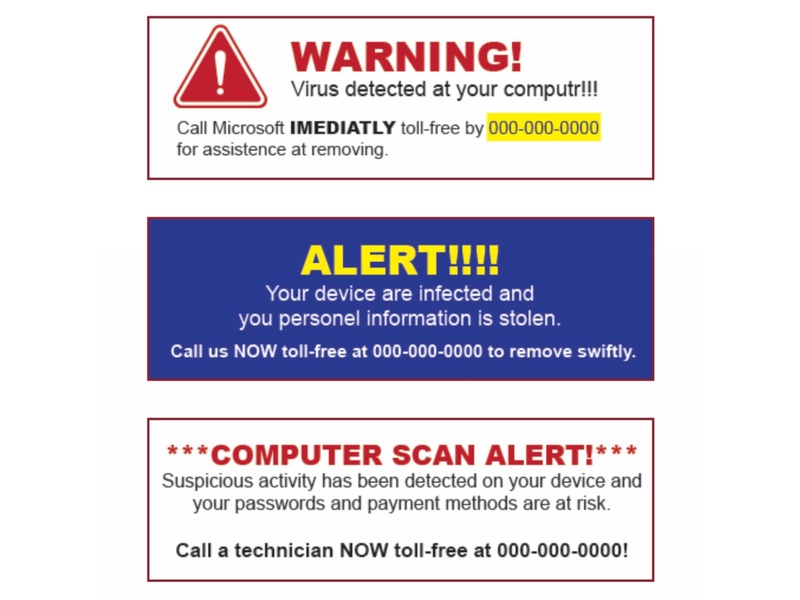Editor's note: The following sponsored content was provided by Educators Credit Union.
As criminals introduce new and creative ways to commit fraud, financial institutions' main priority is protecting you and your finances.
In this article – and in our previous article, running through four other types of popular scams – you will read stories from unsuspecting victims, learn how to recognize the warning signs of a scam and receive information on how to protect yourself from these scams. We hope this piece gives you valuable information to help you and your loved ones from becoming victims of fraud.
Is it a scam?
Here are seven questions to help you. If you answer yes to any of these questions, it’s likely a scam.
- Were you asked to lie or hide information from your financial institution?
- Were you contacted unexpectedly about a payment, delivery or charge you didn’t know about?
- Did someone call, email or text you asking for your username and password to online banking?
- Were you asked to wire money or buy gift cards?
- Did someone ask you to send back extra money because they overpaid you?
- Were you promised quick or easy money?
- Were any of the requests above presented as urgent or threatening?
And here are seven tips to keep your accounts and personal information safe.
- Never send or give anyone your online banking username and password. There is no reason why anyone would ever need your login credentials to access your accounts.
- Only log in from your financial institution's mobile banking app or directly on the official website.
- Never act immediately. Any legitimate business will never pressure you. Instead, they will allow you to decide when you’re ready.
- Keep your electronic devices up to date with the latest software updates.
- Don’t send money back to someone who “accidentally” sent you money via digital payment.
- Use strong passwords. A strong password is long and memorable, since longer passwords are harder for hackers to break. For instance, a password can be a long phrase with a mix of numbers and symbols. It’s also essential to change your important passwords every three months and to not reuse passwords.
- Verify, verify, verify. If you receive an email, text message or phone call, verify it’s from a trusted source.
1. Debt collector scam
Ari received an urgent call from someone claiming to be from the “IRS.”
They said she owed a $4,000 tax debt. The caller had her name, address and other personal information which made the call sound official.
“They were very demanding and hostile,” she said. “They even threatened that the police were coming to arrest me.”
The caller demanded that she either wire them $4,000 or purchase gift cards, so she purchased $3,000 in iTunes gift cards and $1,000 in Google Play gift cards. Then, she sent them pictures of the purchased gift cards.
Ari lost $4,000.
Here’s how to identify this scam: The Internal Revenue Service (IRS), government agencies and any legitimate business will never threaten anyone with arrest or demand immediate payment of a tax debt or fine with unusual payment methods like gift cards, Bitcoin or prepaid credit cards.
Here’s how to protect yourself from this scam:
- Hang up the phone immediately if someone contacts you claiming you will be arrested due to a tax debt.
- Be suspicious of any contact with someone claiming to be from the IRS, even if it sounds legitimate. When in doubt, call the IRS directly to check.
- Keep your Social Security number and bank account information private if you're contacted online or over the phone.
- Beware of fake emails. The IRS will never initiate contact via an unsolicited email to request personal or financial data.
2. Relative scam
Imagine getting a frantic phone call from your "grandchild" or "relative," who needs you to bail them out of jail in a foreign country or give them money because they were robbed.
You notice the person on the phone doesn’t sound like your loved one, but they blame it on being distraught, sick or a bad connection.
You wire the money just in case they really do need help. But, when you call to check on your loved one, you realize they were at home, perfectly safe the
entire time.
Here’s how to protect yourself from this scam:
- Never wire money to an unknown person. If you receive a call about a family member in distress, hang up and call the person directly or verify the information with family members.
- Use a family code word. This family password should be unique and can be used during emergencies to verify identities.
- Slow the process down. Never say yes to a money transfer based on a single call.
- Ask lots of questions. Ask questions that would be hard for an impostor to answer correctly, such as the name of the person's pet, their mother's birth date, or a coworker’s name.
- Consider limiting the personal content you share online. Scammers can extract your voice from videos on social media. Ensure your profiles are private to restrict access to only friends and family.
- Even if it sounds like your relative, still be extremely cautious. Artificial intelligence can be used to make the caller’s voice sound identical to your relative’s voice.
3. Pet scam
Imagine you see a desirable pet listed for sale online.
You reach out to the prospective seller and express interest in purchasing the animal. After you send money to the alleged owner to pay for the pet, you are told that additional funds are needed to cover the cost of things like a ventilated shipping crate, insurance and other reasons.
Regardless of how much money is sent, the alleged seller will find new reasons to ask for additional payment. This continues until you realize you’ve been scammed at which point you could be out hundreds or thousands of dollars. The alleged sellers don’t own any actual pets and are just out to scam victims of all the cash they can.
Here’s how to protect yourself from this scam:
- Always meet your future pet in person before paying.
- Never wire money for a pet purchase.
- Beware of any seller who says they’re located out of town (or worse, overseas).
- Don’t pay for a pet you found online with money transfer apps and services.
- Adopt from a local shelter.
- Don’t trust “free pet” offers or offers that seem too good to be true.
4. Money wiring scam
Be vigilant when it comes to using wire transfers as a payment method. Wire transfers allow fraudsters to receive money quickly and largely without a trace.
If you receive a call from someone claiming to be from the government or a well-known business, such as Target, UPS or Amazon, advising that you owe them money, be extremely suspicious. Instead, hang up and call the company directly to check if the call is legitimate.
If someone who you met on social media or online is asking you to wire them money, you may be the target of a romance scam. Refuse to wire money to people you’ve never met in person, regardless how “urgent” their request seems.
Always remember to verify, verify, verify
If you receive an email, verify it’s from a trusted source.
If you receive a text message, verify it’s from a trusted source.
If you receive a call, verify it’s from a trusted source.
If you fear that you’ve been the victim of a scam, don't feel embarrassed or alone. Your financial institution should be there to support you and help you – so call them directly.







